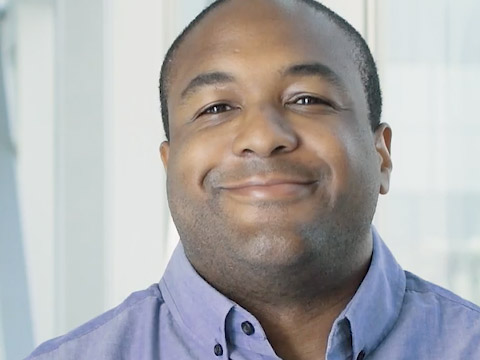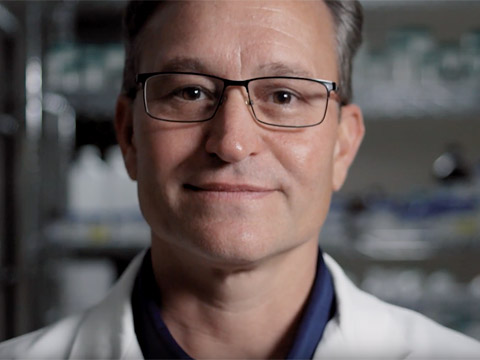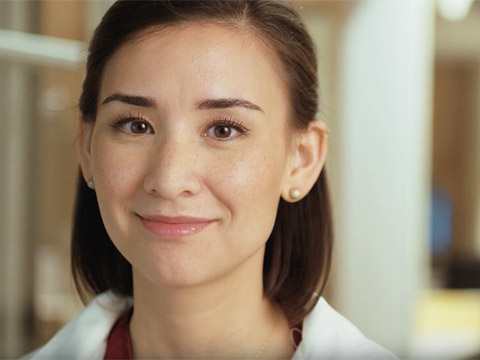More than 90 percent of Americans live within five miles of a pharmacy, making pharmacists the most accessible health care providers today.
A career in pharmacy is more dynamic than you think. Pharmacists work in hospitals, serve in the military, advocate for policy and influence business. They work as part of large corporations and independent entities, and they are leading the way in initiatives like vaccines, diabetes management, safe medications use and more.
At the center of it all, pharmacists are committed to provided the highest quality of care to their patients. At Samford’s McWhorter School of Pharmacy, we are here to help you answer your calling. With our personalized Pharm.D., we give you the opportunity to align your education with your future career goals, equipping you with the knowledge and skills to excel in any area of pharmacy you choose to pursue.

Sam Blakemore ‘12
Pediatric Pharmacist, Peds Rx Pharmacy Solutions
When I entered my fourth and final year of pharmacy school, I felt like I was set. I loved working at Walgreens, and I felt like my career was calling me there. But then I received my schedule for my year of clinical rotations. I looked at it and thought, I didn’t pick this. More
But looking back now, I realize that every rotation I had made a profound impact on my future.
One of the most impactful experiences was at a pediatric pharmacy. It’s amazing to witness what pharmacists do to care for kids. For pediatric pharmacy is all about individualized care. Medications are not always set up to work for smaller doses, so we compound medications into liquids, ointments and other forms.
My final rotation was at Children’s of Alabama. I ended up working there when I graduated, and in 2013, I began working at Peds Rx, the hospital’s outpatient pharmacy.
In my role today, everything I do goes back to access. You can have a great medication, but if you don’t create a discharge plan or complete the correct paperwork, it doesn’t matter. Eighty percent of the patient population here at Children’s of Alabama is under Medicaid. And while Medicaid fights for these kids, it’s important that, as a pharmacist, I also do my part.

David Bush ‘91
Nuclear Pharmacist and Owner, AccuRx Pharmacy Services
When I reflect upon my career, it seems like God has laid out my life like stepping stones. When I was a teenager, my friend helped me get a job at my neighborhood's pharmacy, delivering medications and helping anywhere I could. One day, the owner asked me, “Have you ever considered a career in pharmacy?” More
Later in pharmacy school, my chemistry professor introduced me to nuclear pharmacy; he even helped me land an summer internship at, what was at the time, the only nuclear pharmacy in town. I was hooked almost right away.
Nuclear pharmacy is a specialty within our profession dedicated to the compounding and dispensing of patient-specific radiopharmaceutical doses for diagnostic imaging and therapeutic procedures. This year, we launched an infusion clinic in our pharmacy, making it possible for us to administer a class of drugs called biologics to patients who are diagnosed with diseases like multiple sclerosis, Crohn’s disease, psoriatic arthritis and others.
It has been amazing to interact with these patients and see their outcomes first hand. When you hear a patient say, “I’m doing a lot better since I’ve started this treatment,” you realize you are making a difference.

Adrienne Darby ‘15
Critical Care Pharmacist at UAB Medicine
Sometimes when I tell people who are not familiar with the health care system where I work, they say, “I didn’t know hospitals had pharmacists.” I just tell them—of course—someone has to focus on the details, like medication dosage. More
I first became interested in pharmacy in high school after I had the opportunity to shadow in a compounding pharmacy in my hometown. In that retail setting, I saw first-hand how pharmacists are easily accessible and highly knowledgeable health care providers.
But I think what ultimately drew me to the profession was how pharmacy lives at this intersection between science and the health care pathway I knew I wanted to pursue. I became fascinated with learning the why behind medications and the knowledge to help optimize patient care.
Through an internship in pharmacy school, I gained experience in critical care pharmacy, which is what I do now. The patients I work with are incredibly complex as they can potentially be on a lot of different medications. My favorite part of my job is being a member of the interprofessional team, working together to come up with the optimal plan for a patient. I see it first hand: Pharmacists are a highly valued member of the team, especially in critical care.
Learn More About Our Degrees




